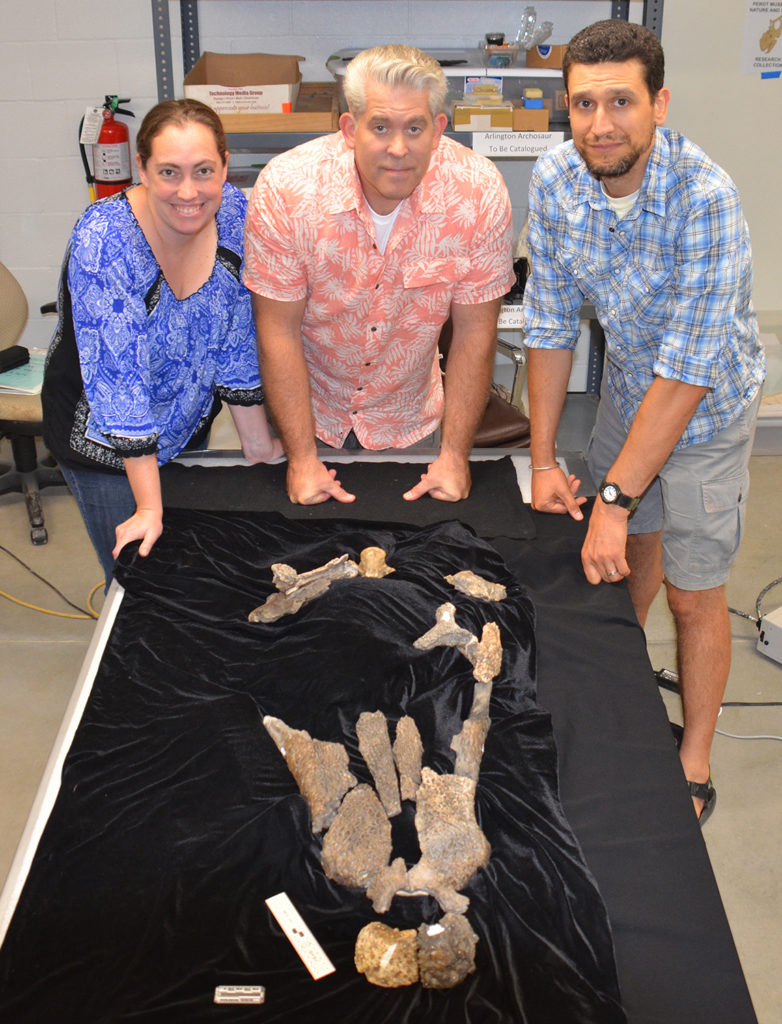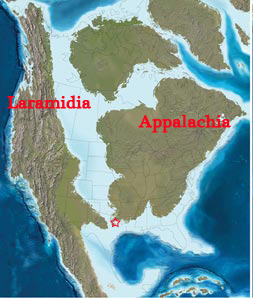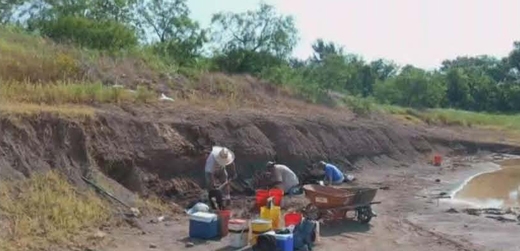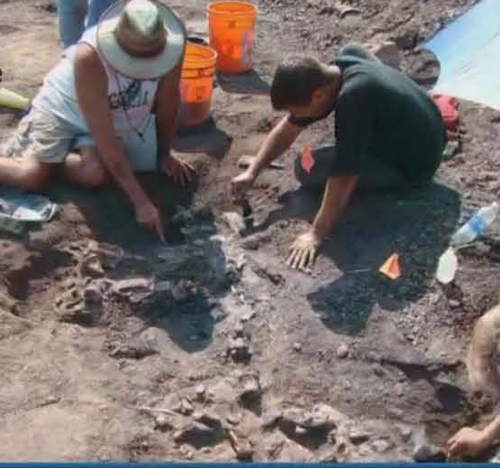Deltasuchus – Dinosaur Crunching Crocodile Identified in New Research
Deltasuchus motherali – Unlocking the Fauna of Appalachia
A team of researchers based in the United States have uncovered the remains of an early Late Cretaceous crocodile that is distantly related to modern-day crocodiles. The discovery comes from the Arlington Archosaur Site, this location is rapidly proving to be one of the best sites for helping palaeontologists to understand the fauna of Appalachia.
Late Cretaceous Fossils
During the early Late Cretaceous, much of North America was covered by a shallow sea (Western Interior Sea), the area around Fort Worth and Arlington (Texas), about 95 million years ago, was a peninsula, projecting into this tropical sea. The peninsula was covered in swamps and marshes and the Arlington Archosaur Site (part of the Woodbine Formation), preserves a record of the animals that inhabited this low-lying area.
University of Tennessee faculty member, Stephanie Drumheller-Horton, (Department of Earth and Planetary Sciences), has described this new crocodyliform, named Deltasuchus motherali in a scientific paper published in the “Journal of Vertebrate Palaeontology”. Working in collaboration with Thomas Adams (Witte Museum) and Christopher Noto (University of Wisconsin-Parkside), Stephanie describes this ancient crocodile as a “generalist”, the shape of the skull and the jaw suggests that this crocodile, which may have grown to lengths in excess of six metres, preyed on turtles, fish and may have ambushed small dinosaurs.
Deltasuchus motherali
Scientists Show the Skull Material of D. motherali

Stephanie Drumheller-Horton, (far left) with Thomas (Witte Museum) and Christopher Noto (University of Wisconsin-Parkside) with the skull elements of Deltasuchus motherali.
Picture credit: University of Tennessee
The Arlington Archosaur Site
First discovered in 2003, the Arlington Archosaur Site, has provided palaeontologists with an opportunity to examine life in the Late Cretaceous on the south-western coast of Appalachia. Very few vertebrate fossils are known from those parts of the United States that once made up the landmass called Appalachia. The scientists are confident that more types of crocodile, turtle, fish and amphibian will be named from fossils excavated from the Arlington area. Ornithopod fossil teeth have also been found at this dig site, but to date, no significant quantities of dinosaur bones have been excavated.
A Map Showing the Approximate Position of Arlington on Appalachia in the Early Late Cretaceous
In the picture above, the red cross shows the approximate location of Arlington in the early Late Cretaceous. The Arlington Archosaur Site is undergoing rapid residential development and the field teams are in a race with construction companies to map and excavate the area as quickly as possible.
The Arlington Archosaur Site
Picture credit: University of Tennessee
A Significant Crocodyliform Fossil from the Arlington Archosaur Site
Commenting on the significance of the crocodyliform fossil find, Drumheller-Horton stated:
“We simply don’t have that many North American fossils from this part of the Cretaceous, the last period of the age of dinosaurs, and the eastern half of the continent is particularly poorly understood. Fossils from the Arlington Archosaur Site are helping fill in this gap, and Deltasuchus is only the first of several new species to be reported from the locality.”
The species name of Deltasuchus motherali honours one of the site volunteers, Austin Motheral, who first uncovered the fossils of this particular crocodile with a small tractor when he was just fifteen years old.
Field Team Members and Volunteers Excavating the Fossils
Picture credit: University of Tennessee
Everything Dinosaur acknowledges the assistance of a media release from the University of Tennessee in the compilation of this article.
Visit the Everything Dinosaur website: Everything Dinosaur.




